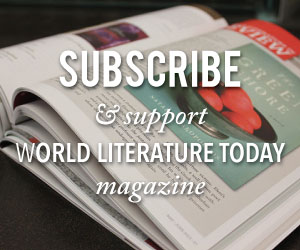2013 Visiting Writers and Artists
Keynote Speakers

For over thirty years Phil Borges has been documenting indigenous and tribal cultures, striving to create an understanding of the challenges they face. His work is exhibited in museums and galleries worldwide, and his award-winning books include, most recently, Tibet: Culture on the Edge. He has hosted television documentaries on indigenous cultures for Discovery and National Geographic. In 2004 Phil was honored with a Lucie at the International Photography Awards for his humanitarian work. He lectures and teaches internationally, and his current projects focus on social and economic gender issues in the developing world. To create Stirring the Fire, in 2004 Phil met the women and girls that are featured in the exhibition while documenting projects for NGOs like Amnesty International and CARE. The companion book, Women Empowered: Inspiring Change in the Emerging World, with a foreword by Madeleine Albright, documents women from developing countries who have broken through barriers of tradition and oppression to become catalysts of change in their communities.

Maaza Mengiste was born in Addis Ababa, Ethiopia, and graduated with an MFA in creative writing from New York University. Her stories and essays have appeared widely, including the New York Times, BBC Radio 4, The Granta Anthology of the African Short Story, Granta magazine, and Lettre International. She is a Fulbright Scholar who has also received fellowships from the Emily Harvey Foundation, the Virginia Center for the Creative Arts, the Prague Summer Program, and Yaddo. She teaches at NYU and lives in New York City. Her debut novel, the critically acclaimed Beneath the Lion’s Gaze (2010), is the epic tale of a father and two sons, of betrayals and loyalties, of a family unraveling in the wake of Ethiopia’s 1974 revolution. It has been translated into several languages and appeared on a number of “Best of 2010” lists. Her second novel (in progress), The Shadow King, is a story about Fascist Italy’s invasion and occupation of Ethiopia and the army of Ethiopian men and women who confront them.
Workshop Instructor
Nathan Brown is a musician, photographer, and award-winning poet who will serve as Oklahoma Poet Laureate in 2013–2014. He holds a PhD from the University of Oklahoma and has published eight books—Karma Crisis: New and Selected Poems, came out from Mezcalita Press in 2012, and a previous book, Two Tables Over, won the 2009 Oklahoma Book Award. He has twice been nominated for the Pushcart Prize, and his newest CD, Gypsy Moon, was released in 2010.
Panelists
Ralph Beliveau teaches in the Gaylord College of Journalism & Mass Communication. He does research on critical media literacy/learning, media criticism, film/video studies, popular culture, documentary, and rhetorical criticism. He has written about documentary and journalism, network society, horror media, The Wire, African American biographical documentaries, Alex Cox, and Paolo Freire. His PhD is from the University of Iowa, and his BS from Northwestern University. He has taught student groups in Edinburgh, London, Paris, Cardiff, and Arezzo.
Eric Bosse writes short stories, novels, essays, and poems. His work has appeared in The Sun, Zoetrope, Mississippi Review, and other magazines and journals. Ravenna Press published his story collection, Magnificent Mistakes, in 2011. He lives in Norman with his wife and kids and teaches classes on “Transcending Gender,” “Political Satire,” and “The Writing Life” in OU’s Expository Writing Program.
Kristin Dowell is Assistant Professor of Anthropology at the University of Oklahoma. She is a visual anthropologist who has conducted research on Aboriginal media for over a decade and is the author of Sovereign Screens: Aboriginal Media on the Canadian West Coast, published by the University of Nebraska Press. She has worked as an assistant curator at several Native film festivals and teaches courses on visual anthropology, the anthropology of media, and ethnographic video production.
Jill A. Irvine is President’s Associates Presidential Professor and Director of Women’s & Gender Studies at the University of Oklahoma. She is author of The Croat Question, Partisan Politics in the Formation of the Yugoslav Socialist State, and co-editor of State-Society Relations in Yugoslavia, 1945–1991 and Natalija: Life in the Balkan Powderkeg, 1880–1956. She has written numerous articles, book chapters, and government reports about gender and democratic transformations in the Balkans. She is currently working on a book on women, war, and political transformation in the Balkans funded by the International Research & Exchanges Board and the National Council for Eurasian & East European Research.
Yousef Khanfar is an award-winning author and photographer of Palestinian origin whose work has been collected and exhibited in galleries, cultural centers, and museums worldwide. He is the author of three books, Voices of Light (2000), In Search of Peace (2006), and Invisible Eve (2013) and guest-edited the March 2013 photography issue of WLT. In 2009 the Fulbright Center for Peace selected In Search of Peace as the honor book for the Global Symposium of Peaceful Nations. In 2003 Khanfar was selected as one of the world’s top landscape photographers by RotoVision in London, and his work is included in the permanent collection of the International Photography Hall of Fame, where he serves as exhibits chairman.
Kimberly Roppolo is Assistant Professor of English and an affiliated faculty member with Native American Studies at the University of Oklahoma, director of the Native Writers Circle of the Americas, and vice-president of the Wordcraft Circle of Native Writers and Storytellers. She is one of the co-authors of Reasoning Together: The Native Critics Collective (2008), named one of the most important books in her field in the first decade of the 21st century by NAISA, and she is currently revising her manuscript Back to the Blanket: Reading, Writing, and Resistance for American Indian Literary Critics, winner of the NWCA First Books Award for Prose 2004.
Todd Stewart is Associate Professor of Photography & Digital Imaging and Associate Director of the School of Art & Art History at the University of Oklahoma. For many years Stewart’s concerns as an artist have centered on the relationships between history, myth, and culture. This work has included a growing exploration of the American landscape and a continued examination of the question: does place hold memory? Related to these concerns, Stewart recently competed work on the book Placing Memory: A Photographic Exploration of Japanese American Internment (OU Press, 2008). Stewart’s photographs have been exhibited widely throughout the United States, recognized by museum curators at the Whitney Museum of American Art, the Museum of Photographic Arts (San Diego), and publication editors including those from Aperture and the New York Times Magazine.
Raised in rural western New York, Andrew Strout received dual BAs from SUNY Buffalo (1976) and while in graduate school at OU (MFA, 1980), he developed a photography curriculum for both undergraduate and graduate studies that was approved and implemented in 1980. Hired to fill this new position, he has remained dedicated to his students and their goals. His own commitment to photography evolved from preparation for an extended visit to his wife’s home, a native of South India. Andrew’s interests in language, literature, music, theater, performance, and the visual arts has afforded him numerous opportunities to integrate these eclectic elements together.
Mark Andrew White is the Eugene B. Adkins and Chief Curator at the University of Oklahoma’s Fred Jones Jr. Museum of Art. He specializes in American and Native American art of the twentieth century, with a particular focus on the Southwest. After completing his PhD at the University of Kansas in 1999, he joined the faculty at Oklahoma State University in 2000. In 2008 he joined the Fred Jones Jr. Museum of Art and recently curated the reinstallation of the museum after the expansion. His recent publications include the catalogues Art Interrupted: Advancing American Art and the Politics of Cultural Diplomacy and The James T. Bialac Native American Art Collection: Selected Works. He is currently working on an exhibition of Abstract Expressionism in the American Southwest.


